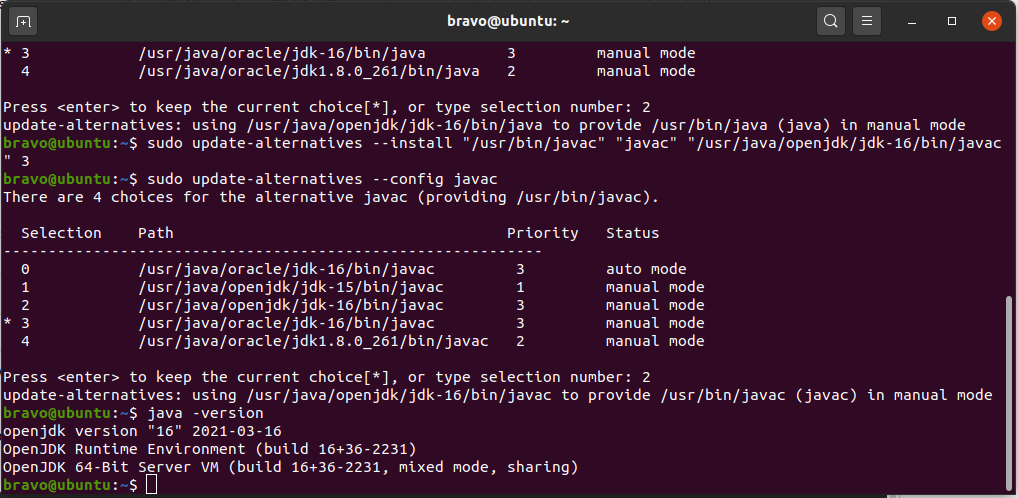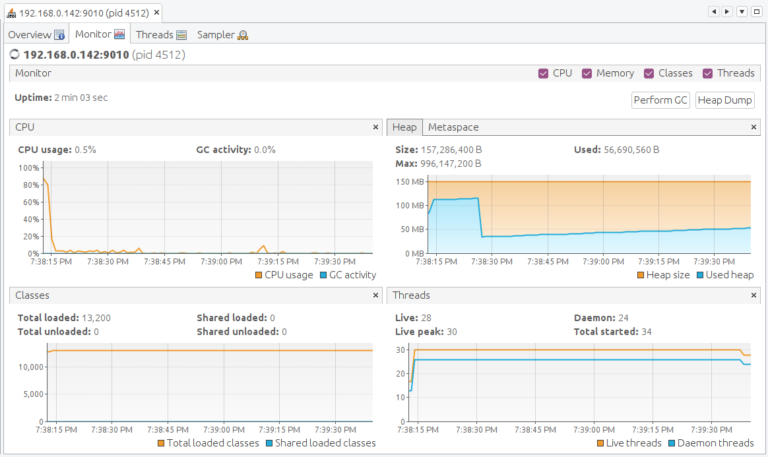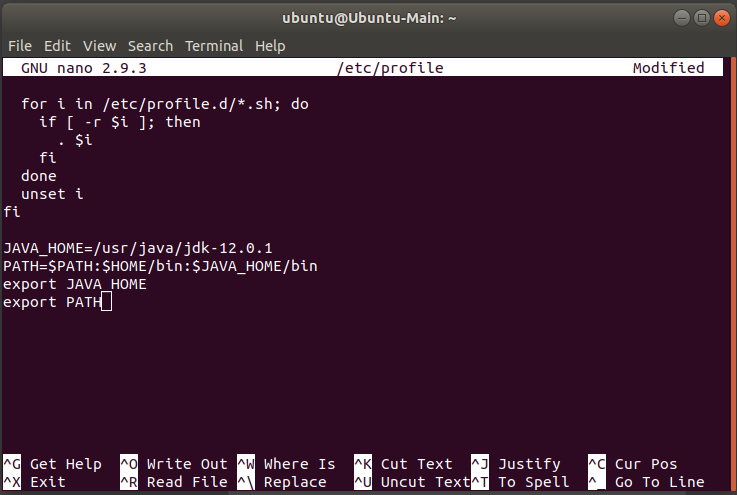

- #Download openjdk 15 ubuntu how to
- #Download openjdk 15 ubuntu install
- #Download openjdk 15 ubuntu update
You should get the following output: java version "15.0.1" Once the installation has been finished, you can verify it with the following command: java -version
#Download openjdk 15 ubuntu install
When the repository is added, you can install it with the following command: apt-get install oracle-java15-installer -y Once all the dependencies are installed, add the Java repository with the following command: add-apt-repository ppa:linuxuprising/java You will need to add the third-party repository in your system in order to install Oracle Java.įirst, install the required dependencies with the following command: apt-get install gnupg2 software-properties-common -y OpenJDK 64-Bit Server VM (build 11.0.9.1+1-Ubuntu-0ubuntu1.20.04, mixed mode, sharing)īy default, Oracle Java is not available in the Ubuntu 20.04 default repository. You should get the following output: openjdk version "11.0.9.1" Once Java 11 is installed, you can verify it with the following command: java -version You can install it with the following command: apt-get install openjdk-11-jdk -y BY default, it ships in the Ubuntu 20.04 default repository. Java 11 is the latest LTS version of Java.

OpenJDK 64-Bit Server VM (build 25.275-b01, mixed mode) You should get the following output: openjdk version "1.8.0_275" Once installed, verify the Java version using the following command: java -version If your application built on Java 8, you can install it with the following command: apt-get install openjdk-8-jdk -y Java 8 is the previous and widely used Java LTS version.
#Download openjdk 15 ubuntu update
You can do this by running the following commands: apt-get update -y Additionally, replace ‘root’ with the username of the admin account if necessary.īefore starting, you have to make sure that all Ubuntu OS packages installed on the server are up to date. You will need to replace ‘IP_Address‘ and ‘Port_number‘ with your server’s respective IP address and SSH port number. Access to the root user account (or access to an admin account with root privileges).An Ubuntu 20.04 VPS (we’ll be using our NVMe 2 VPS plan).
#Download openjdk 15 ubuntu how to
This tutorial will explain how to install Java 8, Java 11, and Oracle Java 15 on Ubuntu hosting. OpenJDK : Java Development Kit includes the JRE and development tools and libraries required to build Java applications. JRE: Java Runtime Environment consists of the Java virtual machine and binaries used to run Java programs. It has a few additional commercial features and permits only non-commercial use of the software. Oracle JDK: It is the official Oracle version of the Java Development Kit. Let’s understand the difference between JRE, OpenJDK, and Oracle JDK. There are different implementations of Java, including JRE, OpenJDK, and Oracle JDK. What is Java? Java is a free, open-source, and most popular language used for developing mobile and desktop applications, and it can run on all major operating systems. Leading the OpenJDK 17 updates project and heavily supporting the OpenJDK 11 updates project.Ĭontributing as many of our features as possible to the OpenJDK project and keep the diff of this project as small as possible.Let’s talk about how to install Java on Ubuntu 20.04. SAP is:Ī member of the JCP Executive committee since 2001 and recently served in the JSR 379 (Java SE 9), JSR 383 (Java SE 18.3), JSR 384 (Java SE 11), JSR 386 (Java SE 12), JSR 388 (Java SE 13), JSR 389 (Java SE 14), JSR 390 (Java SE 15), JSR 391 (Java SE 16), JSR 392 (Java SE 17), JSR 393 (Java SE 18), JSR 394 (Java SE 19), JSR 395 (Java SE 20) and JSR 396 (Java SE 21) Expert Groups.Īmong the biggest external contributors to the OpenJDK project (see fix ratio for OpenJDK 11, 12, 13, 14, 15, 16, 17, 18, 19, 20). SAP is committed to ensuring the continued success of the Java platform. We want to stress that this is clearly a “ friendly fork”.


It is used to build and maintain a SAP supported version of OpenJDK for SAP customers and partners who wish to use OpenJDK to run their applications. This project contains a downstream version of the OpenJDK project.


 0 kommentar(er)
0 kommentar(er)
